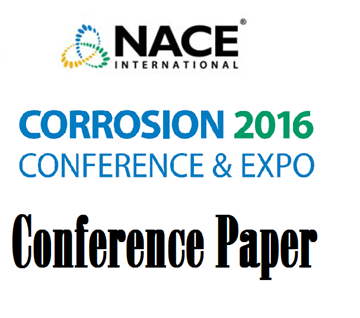Search
97104 EVALUATION OF WATER CHEMISTRY ON THE PITTING SUSCEPTIBILITY OF ALUMINUM
Also Purchased
99554 SELECTING APPROPRIATE LONG TERM SOLUTIONS FOR REINFORCED CONCRETE BRIDGE COMPONENTS IN CORROSIVE ENVIRONMENTS
Product Number:
51300-99554-SG
ISBN:
99554 1999 CP
$20.00
51312-01675-Water Soluble Magnesium and Aluminum Corrosion Inhibitors
Product Number:
51312-01675-SG
ISBN:
01675 2012 CP
Publication Date:
2012
$20.00
51316-7199-Documented Evidence of Significant Metal Loss in Aluminum Crevice Corrosion
Product Number:
51316-7199-SG
ISBN:
7199 2016 CP
Publication Date:
2016
$20.00




